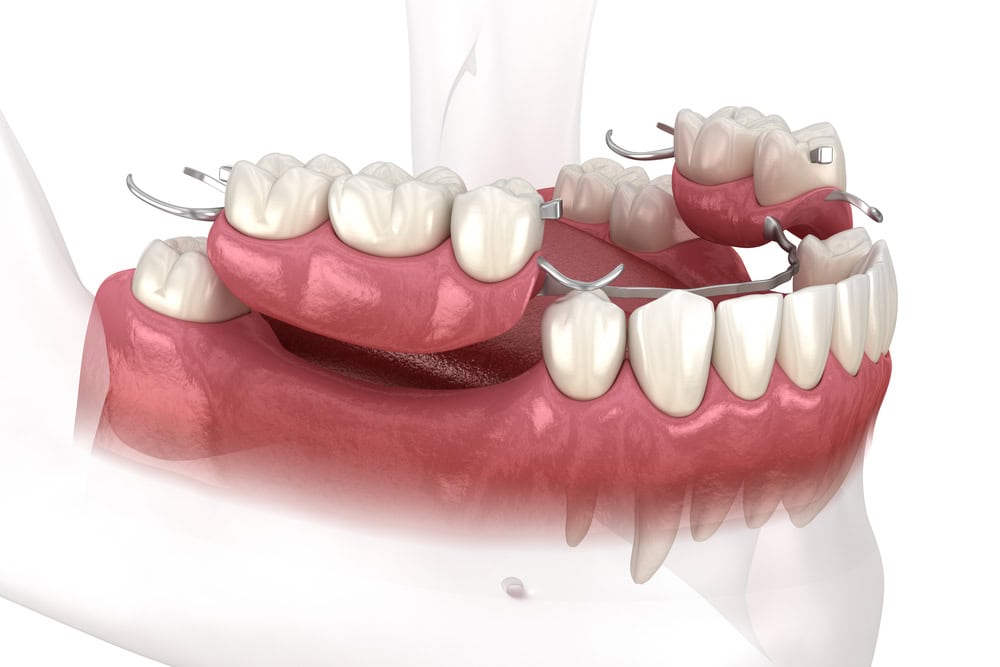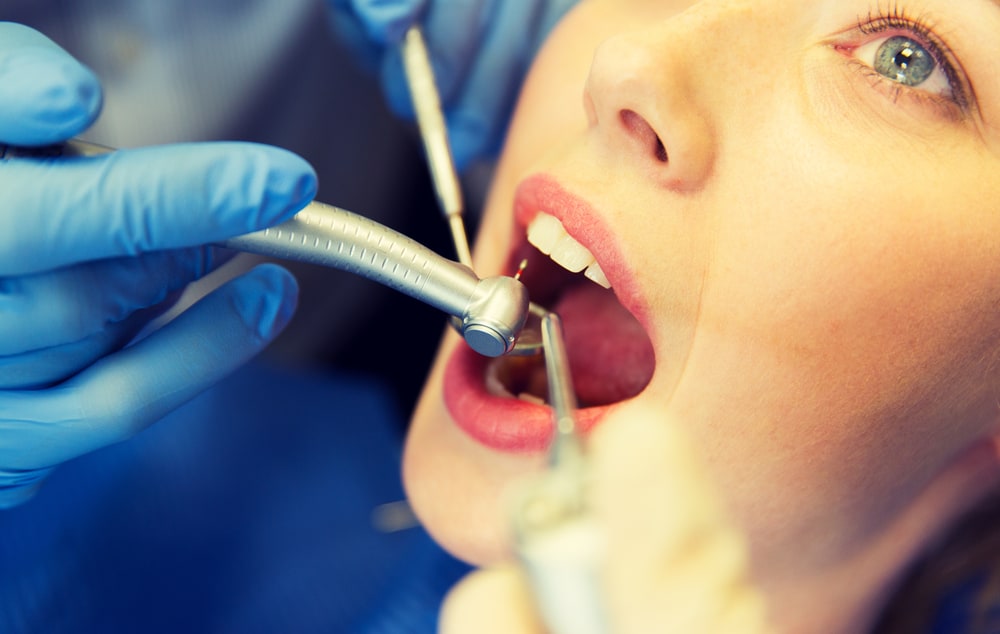For many of us, wisdom teeth are uninvited guests that arrive in our late teens or early twenties. When they come in, they can cause a variety of symptoms that can be uncomfortable or even painful. Knowing the signs of problematic wisdom teeth before they arrive can help you get the needed treatment and be prepared for any potential complications.
In this article, we’ll explore how to spot the symptoms of problematic wisdom teeth, the potential causes, risk factors, and how to prevent them from becoming a problem in the first place. By recognizing the signs early, you can take the steps necessary to protect yourself from the discomfort and potential health risks associated with problematic wisdom teeth.
What are Wisdom Teeth?
You probably already know this, but wisdom teeth are the last of your adult teeth to come in, and about 85% of people have at least one wisdom tooth that’s impacted – meaning it’s blocked from coming in normally. When wisdom teeth are impacted, they can cause many problems, from dry sockets to tooth decay to severe pain.
In some cases, blood clots can form near the impacted wisdom tooth, leading to a condition known as pericoronitis, which can lead to gum disease and infection.
Generally, wisdom teeth start to come in during the late teens, and while they may cause some crowding and shifting of nearby teeth, the problems they can cause are much more severe. Wisdom teeth can also cause tooth decay, as cleaning the area around them can be difficult. Eating hard foods can also be difficult, and many people find themselves stuck eating soft foods for a while after the wisdom tooth is removed.
The best way to avoid the problems associated with wisdom teeth is to get them removed before they cause any pain. A visit to the dentist can help identify any issues and provide advice on how to proceed. In some cases, getting the wisdom teeth removed may even be necessary to prevent infection, gum disease, and other tooth-related problems.
If you start to experience any of the symptoms associated with wisdom teeth, it’s important to contact your dentist as soon as possible. Early diagnosis and removal can help avoid any serious problems in the future.
Common Symptoms of Problematic Wisdom Teeth
You’ll likely experience some discomfort when your third molars come in. As these wisdom teeth come in, you may notice various symptoms ranging from mild to severe.
Common signs of problematic wisdom teeth include:
- Jaw Pain: You may experience pain and tenderness in your jaw caused by your wisdom teeth pushing against your adjacent teeth.
- Sinus Pain: Pressure from your wisdom teeth can sometimes cause pain in your sinus area.
- Swollen and Bleeding Gums: Swelling and bleeding gums can occur when wisdom teeth begin to erupt.
- Infection: If an infection occurs around the wisdom teeth, you may experience pain, redness, and swelling.
If you are experiencing any of these symptoms, you may need to visit an oral surgeon. Your oral surgeon can assess your wisdom teeth and determine if wisdom tooth extraction is necessary. If the oral surgeon decides to remove the wisdom teeth, you may be prescribed pain medications and an antiseptic mouthwash to help with the post-procedure recovery.
In addition, your oral surgeon might need to cut the tooth into sections to ensure all of the tooth is removed.
No matter your situation, it’s important to have your wisdom teeth evaluated by a professional. Contact your oral surgeon to discuss the best options for your wisdom teeth.
Possible Causes of Problematic Wisdom Teeth
Often, the eruption of third molars can cause unwanted pain and discomfort. It is important to watch for the signs of problematic wisdom teeth, as they can be a source of infection if not treated properly.
One of the most common symptoms of problematic wisdom teeth is an unpleasant taste in the mouth that remains even after good oral hygiene is practised. Another symptom is a risk of infection, as food particles can get trapped in the area where the wisdom teeth are trying to erupt. If the infection isn’t treated promptly, it can cause a bad taste in the mouth and even swelling of the gums.
In cases where the infection is severe, it may be necessary to have a surgical procedure to remove the wisdom teeth. The surgery can take anywhere from a few hours to a few days, depending on the severity of the infection. After the surgery, taking special care of the area for a few days is important, as food particles can still be trapped there.
For those experiencing symptoms of problematic wisdom teeth, the best option is to visit a dentist for a dental X-ray. This will help identify the problem and provide the best treatment options. For minor cases, the dentist may suggest a wisdom teeth extraction, which can help to reduce the risk of infection. However, the dentist may recommend a different treatment option, such as antibiotics or a root canal for more severe cases.
No matter the treatment option, it is important to remember that the earlier the problem is identified, the easier it will be to treat. To prevent the risk of infection and keep the mouth healthy, it is important to maintain good oral hygiene and visit the dentist regularly. By taking the necessary steps to protect the mouth, avoiding the uninvited guests of problematic wisdom teeth is possible.
Risk Factors for Developing Problematic Wisdom Teeth
Though they can be difficult to detect, various risk factors may contribute to the development of impacted third molars. These include the size of the patient’s tooth sockets, which can be too small to accommodate the wisdom teeth; excessive bleeding during the eruption, which can lead to the development of soft tissue; damage to the lingual nerve, which can occur if the wisdom teeth are too close to the nerve; and damage to the jaw bone due to physical activity or normal activities, such as chewing.
It’s important to note that physical activity or strenuous activity can increase the risk of impacted wisdom teeth. For this reason, those who participate in physical activities are advised to follow up with their dentist regularly to monitor any wisdom teeth symptoms.
It’s also important to note that even with regular check-ups, there’s always a risk of complications associated with developing wisdom teeth. Therefore, it’s important to be aware of the risk factors and to visit the dentist regularly to ensure good oral health.
Diagnosing Problematic Wisdom Teeth
If you’re experiencing any difficulties with your back teeth, getting them checked out by a dentist is important.
Orthodontic treatments and removing wisdom teeth are two common options for addressing problematic wisdom teeth.
If your wisdom teeth are misaligned, they may press against your neighboring teeth, cause pain, or interfere with your dental treatment. Wisdom teeth can grow at an odd or wrong angle and may be difficult to reach with a toothbrush or dental floss.
The dentist may recommend the removal of the wisdom teeth if they’re causing pain or interfering with the neighbouring teeth. Removing wisdom teeth is surgical, and the patient may experience postoperative pain and swelling. The dentist will also check for a sensory nerve in the upper wisdom tooth, which can cause increased pain or long-term numbness if damaged during the extraction.
The dentist will use X-rays or CT scans to determine the exact position of the wisdom tooth and decide a course of action. This will help them determine the best way to approach tooth extraction and minimise potential risks.
Getting any issues with your wisdom teeth checked out by a dentist as soon as possible is important. They can provide an effective solution and reduce the pain and discomfort associated with problematic wisdom teeth. With the right diagnosis and treatment, you can regain your smile quickly.
Treating Problematic Wisdom Teeth
The best way to treat your troublesome back teeth is to get them checked out by a dentist. Persistent pain, crooked teeth, and issues with permanent teeth are all signs of wisdom teeth that need treatment. Depending on the severity of the problem, your dentist may recommend an oral surgery procedure. This could include using nitrous oxide or other types of anesthesia to reduce pain and discomfort during the procedure.
After the procedure, your dentist will advise you to avoid chewy, spicier or hard foods for the first few weeks while your mouth heals. Instead, opt for softer, semisoft foods that are easier to chew. While it’s important to follow your dentist’s instructions, if the pain persists or worsens, it’s important to seek urgent medical care.
Your wisdom teeth are a vital part of your oral health, and taking good care of them is important. Regular checkups with your dentist can help ensure that any problems with your wisdom teeth are caught early and treated properly. Taking care of your wisdom teeth can help prevent any long-term damage or complications.
Prevention of Problematic Wisdom Teeth
Taking action now can save you from future pain and discomfort; don’t let your wisdom teeth be the cause of unnecessary suffering! Visiting your local dental clinic is a great place to start. By discussing your care instructions with your dentist, you can take steps to prevent problematic wisdom teeth.
Gum tissue should be monitored for any inflammation or periodontal disease, as it’s a common issue with wisdom teeth. If any such issues occur, a surgical approach may be needed, and alveolar osteitis can result if the teeth aren’t removed quickly.
Additionally, a bad smell or taste in the mouth can indicate that wisdom teeth must be removed. It’s important to listen to your comfort level when getting wisdom tooth surgery. If you experience any of these issues, it’s best to consult your dentist for the best possible care.
Taking preventative measures regarding wisdom teeth can help you avoid future pain and discomfort. Regularly visiting your local dental clinic can reduce your risk of developing any tooth-related issues. Be sure to ask your dentist about any care instructions to ensure your teeth remain healthy and strong. With the right preventative care, you can ensure your wisdom teeth are no longer uninvited guests.
Key Takeaways
Concluding, problematic wisdom teeth can cause a variety of symptoms and should not be ignored. Early diagnosis and proper treatment is the best way to prevent further complications.
In fact, statistics show that over 80% of adults over the age of 35 have at least one wisdom tooth that may have become impacted, making it important to be aware of any potential warning signs.
Taking care of your teeth is essential for maintaining long-term oral health.
At Western Sydney Smiles in St Marys, NSW, our team of expert dentists and oral surgeons can help diagnose and treat any issues related to wisdom teeth. We understand the importance of preventive care in order to maintain your long-term oral health. Don’t wait until it’s too late – make an appointment today to ensure your smile stays healthy and beautiful!







